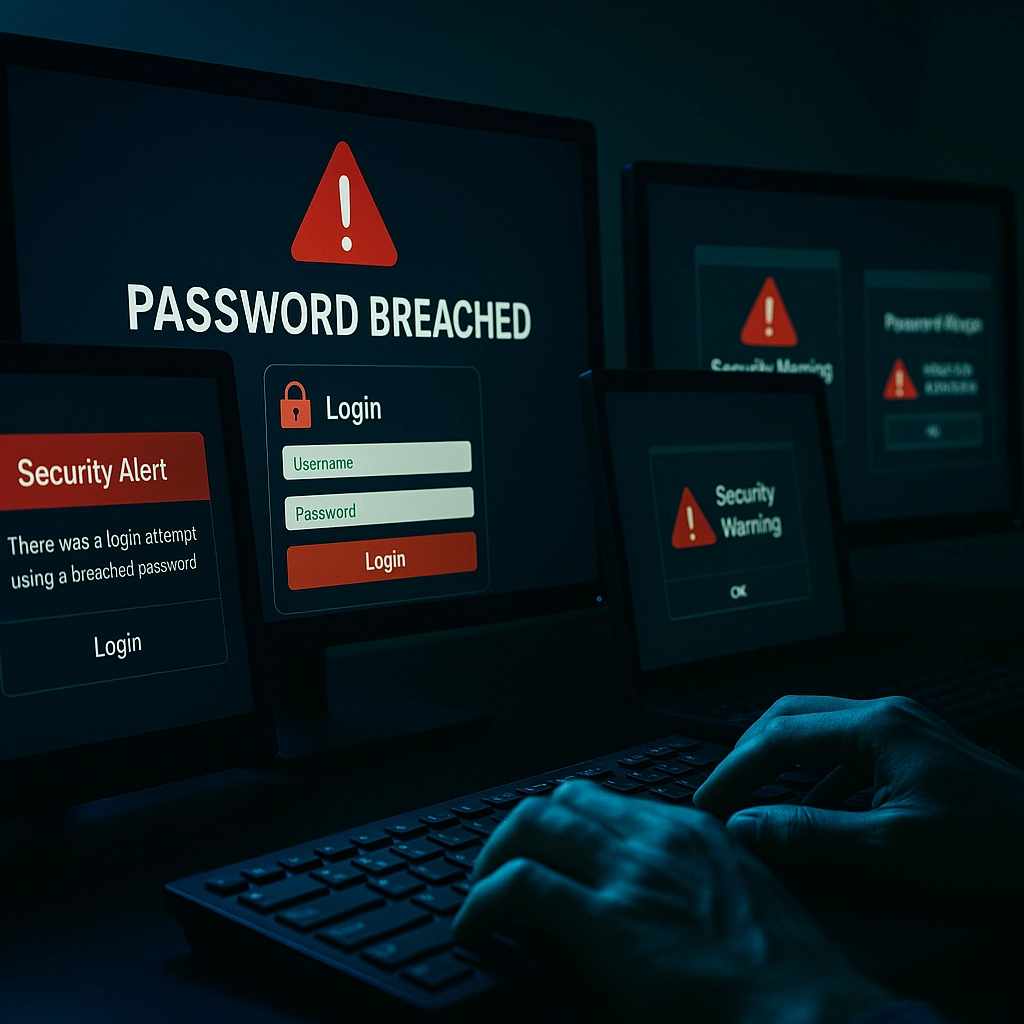5 Cybersecurity Mistakes Small Businesses in Chicago Make Every Day
- Jahmar Childs
- Aug 29, 2025
- 5 min read
Here's the harsh truth: every day, small businesses across Chicago are making cybersecurity mistakes that could cost them everything. From River North startups to family-owned shops in Pilsen, these errors happen so frequently that they've become routine – until the day hackers strike.
As someone who's seen too many Chicago businesses learn these lessons the hard way, I'm sharing the five biggest cybersecurity mistakes that happen daily in our city. More importantly, I'll show you exactly how to fix them before it's too late.
Mistake #1: "We're Too Small to Be Targeted"
This mindset is costing Chicago's small businesses millions every year. I hear it constantly from business owners on the South Side to Lincoln Park: "Why would hackers care about my little company?"
Here's what they don't realize: cybercriminals love small businesses precisely because they think this way. You're not too small – you're the perfect size. Hackers see small businesses as low-hanging fruit with valuable data but minimal protection.
Think about it from their perspective. They can spend three hours attacking a small Chicago business to steal $5,000, or spend one hundred hours trying to crack a Fortune 500 company for the same return. Which would you choose?

The Chicago Reality Check: Every day, hackers scan thousands of websites looking for vulnerabilities. They don't care if you're a two-person accounting firm in Wicker Park or a 50-employee manufacturer in Back of the Yards. They want your customer emails, employee personal information, and access to bigger networks through your connections.
How to Fix It: Stop thinking like a small fish and start acting like the valuable target you actually are. Implement the same security mindset that larger companies use – assume you're always being targeted, because you probably are.
Mistake #2: Password Chaos Across Your Team
Walk into any Chicago small business and ask to see their password policy. Half the time, you'll get blank stares. The other half will show you a sticky note system that would make hackers smile.
"Password123" might seem harmless for your accounting software, but it's the digital equivalent of leaving your front door wide open with a sign that says "valuables inside." Yet every day, Chicago employees are logging into critical business systems with passwords that take hackers seconds to crack.
The problem gets worse when employees reuse the same weak password across multiple accounts. When one account gets compromised, hackers suddenly have access to everything – your email, your banking, your customer database, everything.
How to Fix It:
Require passwords with at least 12 characters combining letters, numbers, and symbols
Mandate unique passwords for every business account
Implement multi-factor authentication on all critical systems
Use a business password manager to make strong passwords easy
Pro Tip for Chicago Businesses: Many cyber insurance policies now require strong password policies. This isn't just about security – it's about staying covered when something goes wrong.
Mistake #3: Treating Cybersecurity Training Like a One-Time Event
Here's a scenario that plays out daily in Chicago offices: Sarah from accounting gets an email that looks like it's from her bank, clicks the link, enters her login information, and boom – hackers now have a foothold in your network.
The frustrating part? Sarah isn't careless. She's never received proper cybersecurity training, so she had no idea what to look for. Most small businesses either skip employee training entirely or treat it like a checkbox – do it once during onboarding and forget about it.

Meanwhile, hackers are constantly evolving their tactics. The phishing email that wouldn't have fooled anyone six months ago now looks identical to legitimate communications from Chase Bank or ComEd.
How to Fix It:
Conduct monthly mini-training sessions (15 minutes maximum)
Show real examples of current phishing attempts targeting Chicago businesses
Run simulated phishing tests to identify who needs extra help
Create a simple process for employees to report suspicious emails
Chicago-Specific Tip: Hackers often use local references to make their attacks more believable. Train your team to be extra suspicious of emails mentioning Chicago events, weather, or local businesses they don't normally hear from.
Mistake #4: Playing Russian Roulette with Software Updates
Every day, software companies release security patches to fix newly discovered vulnerabilities. Every day, Chicago small businesses ignore these updates because they're "too busy" or worried about downtime.
This is like knowing there's a broken lock on your door and deciding to fix it "next week" because you don't want to be inconvenienced. Hackers specifically look for businesses running outdated software because they know exactly which vulnerabilities to exploit.
The worst part? Many of these updates can be automated to install during off-hours, so there's really no excuse for falling behind.
How to Fix It:
Enable automatic updates for all operating systems and software
Schedule major updates during slow business hours
Keep an inventory of all software and devices that need regular updates
Prioritize security patches over feature updates
Reality Check: That "remind me later" button on your Windows update notification isn't protecting your business – it's giving hackers more time to plan their attack.
Mistake #5: Running Your Business Without Security Ground Rules
Imagine trying to run a Chicago restaurant without food safety protocols, or a construction company without safety procedures. Sounds crazy, right? Yet many small businesses operate without any formal cybersecurity policies.
Without clear guidelines, employees make up their own rules: using personal devices for work, sharing passwords via text messages, storing customer data on personal cloud accounts, or working on sensitive projects from coffee shops with open WiFi.

Your team isn't trying to create security risks – they're just doing what seems convenient without understanding the consequences.
How to Fix It: Create simple, written policies covering:
Acceptable use of company devices and networks
How to handle sensitive customer information
Procedures for working remotely or from public locations
Steps to take when a security incident occurs
Password requirements and account access rules
Keep It Simple: Your policy doesn't need to be a 50-page manual. A two-page document that everyone actually reads and follows is infinitely more valuable than a comprehensive policy that sits in a drawer.
The Cost of Doing Nothing
Let's be honest about what happens when Chicago small businesses ignore these mistakes. The average cost of a cyber attack on a small business is $200,000 – and 60% of small businesses that experience a significant cyber attack go out of business within six months.
For a Chicago small business, that could mean:
Lost customer trust and reputation damage
Legal liability for compromised customer data
Operational downtime while systems are restored
Regulatory fines and compliance issues
Emergency IT costs to clean up the mess
But here's the encouraging news: every single one of these mistakes is completely preventable. You don't need a massive IT budget or a dedicated security team. You just need to take action on the basics.
Your Next Steps
Don't wait for a cyber attack to force your hand. Start fixing these mistakes today:
This Week: Audit your current password practices and implement multi-factor authentication on your most critical accounts
This Month: Create basic security policies and schedule monthly team training sessions
Ongoing: Set up automatic updates and regular security check-ins
Remember, cybersecurity isn't a destination – it's an ongoing process. The businesses that thrive are the ones that build security into their daily operations, not the ones that scramble after an attack.
Your Chicago business deserves protection that works as hard as you do. These five mistakes are completely avoidable, but only if you're willing to take action today.
Ready to stop making these costly mistakes? Let's assess where your business stands and create a security plan that actually fits your budget and workflow. Book your free IT Health Check with Vertex Tech Management today.
Comments